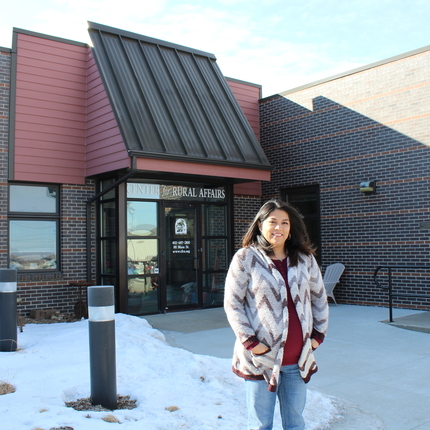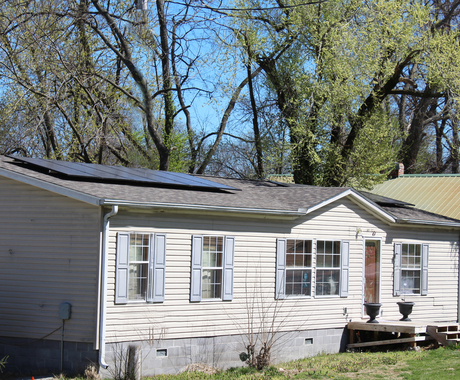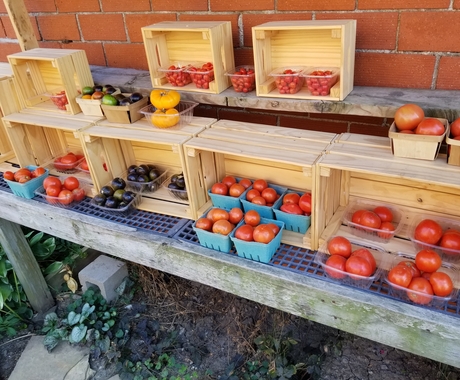Vicky Espinoza contributed to this blog.
Your next door neighbor. Your friend from the gym. Your co-worker, doctor, lawyer, hair stylist—these are people from our communities who we know and love. And, they are DACA recipients.
DACA, or the Deferred Action for Childhood Arrivals program, was introduced in 2012 by President Barack Obama to stop the deportation of people who were brought into the U.S. as children. Though the program does not provide a pathway to citizenship, the status is renewable and lasts two years at a time.
Roughly 800,000 people across the U.S. have been issued this status, and the average DACA recipient is now 25 years old.
Vicky Espinoza, of West Point, Nebraska, is one such recipient. Born in Cuernavaca, Morelos, Mexico, Vicky lived there until she was 18 months old.
“My family was born in Mexico,” said Vicky. “I say ‘born’ because I feel like I am from Nebraska more than any other country or state I’ve lived in.”
After receiving DACA status when she was 25 years old, Vicky’s experiences have improved. From working 12-hour days in factories or looking for cleaning jobs here and there, because of DACA, Vicky now has the opportunity to find work that means something to her, and better provides for her family.
“This program has allowed me to excel in my career by working with people in my community and making a difference,” she said. “I am the first one in my family to own my home. I have seen many doors open for me, and I feel like they wouldn’t have been opened if I did not have DACA.”
Because of this, when considering a career, Vicky’s DACA status played an important role in her decision. She now works with the Center for Rural Affairs as a project assistant.
“I knew I wanted a job where I felt like I was making a difference or impacting people’s lives,” Vicky said. “This work holds extra significance for me because of the work I do and the value it holds to establish strong, rural communities. I love that I am on the ground of the rural communities learning how each of them is unique yet similar, and finding out what and how each community needs to grow and become much stronger.”
All across the country, the benefits Vicky and thousands of others have been offered through DACA have given them the chance at the lives their families always hoped for them.
Along with permission to remain in the U.S., DACA recipients are also allowed to obtain work permits, through which many have been able to access health insurance from their employers. That ability to work has also allowed them to pay for school, pursue higher education, and, depending on the state, drive legally. Though, these benefits are not given without a cost.
“DACA recipients have to be some of the most law-abiding citizens you could meet,” said Vicky. “With every renewal process, we must have our biometrics taken and background checks done, so there is no slipping through the cracks.”
They must either be working or attending school in order to keep their status, which means DACA recipients are still paying taxes, though they are not afforded the same rights as U.S. citizens.
“We cannot leave the country to visit our family members or a dying family member in another country because we will not be allowed to re-enter the United States,” said Vicky. “You cannot have more than three misdemeanors on your record and absolutely no conviction of a felony.”
Even with the strict regulations, Vicky says the tradeoff is worth it.
“We [DACA recipients] have grown up in the United States and have called this place home for many years, which makes us proud to keep helping the communities we live in to prosper and grow either through our work or through our impact on the economy, like buying homes, starting our own businesses, or buying our first car,” Vicky said.
Hundreds of thousands of happy, successful lives, just like Vicky’s, are in danger of being uprooted within the next several months. President Trump’s decision to rescind the DACA program in 2017 has left those affected in a state of constant fear and anxiety of what could happen.
Now, the fate of every one of these people facing deportation hangs on a decision from the U.S. Supreme Court, expected to happen in 2020.
“My initial thoughts upon hearing about this were how and why would anyone want to remove this program, and with that comes fear that it might actually happen,” said Vicky. “Ending DACA would be a devastating blow to the economy and cause so much hardship for the families of those recipients.”
Only time will tell what the Supreme Court decides, and, in the meantime, wondering about what that decision will mean for them and waiting to hear their fate has affected people all across the U.S. For Vicky, that includes her home—the life she’s built in rural America.
“This is where I grew up, this is where I have planted my roots, where I am proud to raise my kids,” said Vicky. “Neighbors see you at social events, games, the local gas station, or mini-mart, and become familiar with your face and even get to know you. When you live in a rural community, it becomes easy to reach out and help when someone is in need or going through a hard situation in life—they become family.”
To learn more about the fate of the 800,000 DACA recipients facing possible deportation pending the Supreme Court’s ruling in 2020, visit our previous blog.




